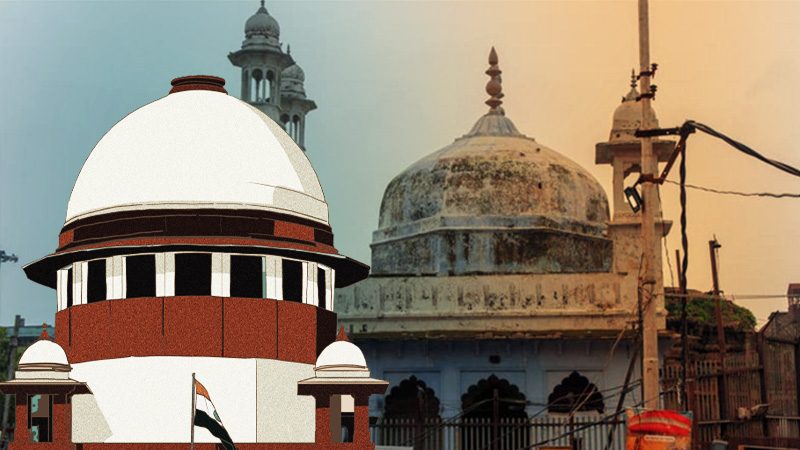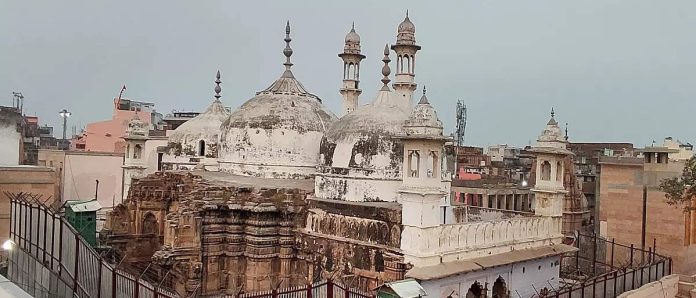- The entire country is witness to how the Ram Janmabhoomi-Babri Masjid agitation kept dragging along for decades before the Supreme Court ruling on the matter concluded the matter. However, several Hindu organizations are demanding similar ruling on contentious structures including the one in news presently, the Gyanvapi mosque in Varanasi. The contention here is that the erstwhile temple was destroyed to build the present-day mosque. The Supreme Court is appraised of the matter and has since passed an interim order on Gyanvapi mosque by removing restrictions on Muslims offering namaz but protecting the spot where a shilling was said to have been found. And the story unfolds from here.

PC: LIVE LAW NEWS NETWORK
- Prima facie, the ruling seems intended to make neither side too unhappy to ensure communal harmony is not disturbed. The fundamental question before the Supreme Court is whether the Places of Worship Act, 1991, which the Varanasi lower court sidestepped, should be upheld in right earnest. No guesses here as the answer must be an unequivocal yes. Remember that anything else will burst a dam that is already being battered following the Varanasi court ruling since there are now demands on surveying and examining the religious character of several masjids and monuments, including the Taj Mahal. Needless to mention, nothing about this will end well leading to lots of acrimonies all around.
- For the uninitiated, the 1991 Act prohibits conversion of religious places and maintains their religious character as it existed on August 15, 1947. Of course, you may recollect that the law had solely exempted the Ram Janmabhoomi-Babri Masjid title dispute, which was of pre-1947 vintage. All other suits filed after Independence are supposed to abate and no court should entertain them. There is absolutely no ambiguity surrounding the Act. Even while granting the disputed Ayodhya land to Hindu petitioners, the SC was all praise for the Places of Worship Act. In no uncertain terms, it had said the law addresses itself to the State as much as to every citizen and that its norms bind those who govern the affairs of the nation at every level.

PC: Digital Desk
- Mind you, the law’s cut-off date of August 15, 1947, isn’t incidental since India wasn’t a nation-state in modern terms before this period but a geographical area that saw many invasions and many centers of power and therefore many conflicts until it became a colony of ruthless imperialist power. Yes, the history isn’t pretty either. But a modern nation-state, especially a diverse democracy that now aspires to be a major global economic power, shouldn’t expend its energy on relitigating history. We are aware of how the country already confronts several communal flashpoints. Thus, adding a mosque-was-temple dimension to it can only lead to dangerous consequences. The onus is on SC to tell lower courts to follow the 1991 Act rigorously to preempt similar such petitions from coming up.






